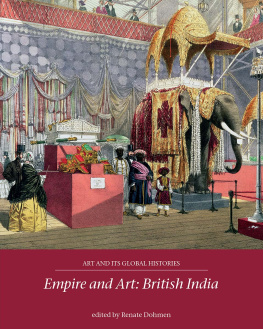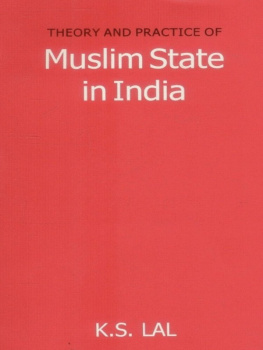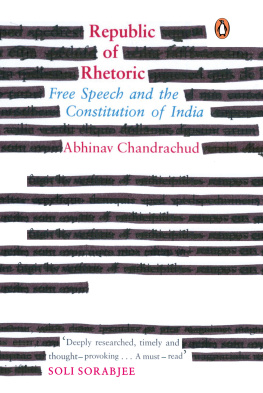Chapter I
No nation nor state ever acquired an accession of dominion so truly valuable and beneficial, as are the acquisitions lately made by Britain in India. But the particular situation of her circumstances at the time when these acquisitions fell into her hands, enhanced the real and intrinsic value of them to Britain. Oppressed by a grievous debt, the annual interest of which, exceeding four millions and a half sterling, was levied by taxes, which raised the price of each manufacture, her commerce labouring under such disadvantages was daily sinking into decay; whilst a considerable part of this annual interest being paid to foreigners, created such a drain of specie, as the balance of her trade could not supply; so that, in proportion as her expence increased, the means of defraying it diminished; and she was every year approaching towards a state of national poverty and bankruptcy.
In such circumstances did Britain acquire the sovereign dominion of Bengal, and of other rich manufacturing and trading countries in India; which, at the time they fell to her, were capable of not only defraying every charge of their own government and defence, but over and above that, of yielding annually to the sovereign a sum equal to 1,300,000 l. sterling, as can be readily demonstrated. Nor do we include in this sum the benefit which Britain had been accustomed to receive, in her commercial capacity, by her trade with those countries: the sum here specified would have arisen purely in consequence of dominion: and, whether transmitted from those countries in merchandize or in money, would at last have arrived at the public treasury in specie: and would thus have served to alleviate the burden of those taxes, that are pressing every branch of her domestic commerce to ruin. And, if Britain had bestowed the smallest attention on the political government of those countries, she might have continued to draw from them the abovementioned tribute sum in perpetuum, without any danger of draining or impoverishing them: nay it is certain, that under a just, equitable and well ordered government, their commerce and agriculture might have been extended to a degree, that would have enabled them to afford a still larger annual tribute to the sovereign. The possession of this Indian dominion is likewise so particularly secured from domestic and foreign danger, by the extraordinary submissive disposition of the natives, the singularly defensible situation of the country, and the naval superiority of Britain, that, by a very trifling expence of men, and no pecuniary charge, she might have maintained it against all enemies. So that Britain might have derived from this dependent dominion resources sufficient to relieve her from all her difficulties and distresses.
This is what Britain might have done: and this was not simply possible, it was easy of execution. But if we enquire what Britain hath done, we shall find that, instead of applying these resources by a proper care and attention to the purpose, for which it would seem the all-wise dispensation of Providence had at this critical conjuncture bestowed them upon her, she hath indolently and desperately thrown them from her, and left them to the will of blind chance. For surely it may with propriety be said, that the government of Britain consigned all these resources to the guidance of blind chance, or rather to certain destruction, when it scrupulously withheld its own care, and implicitly confided the sovereign charge of governing and defending this foreign dominion to a Company of Merchants, so evidently unequal to such a charge, that, instead of being surprized that these countries should now at last be impoverished and ruined, we have reason to be astonished, that they have supported, for such a length of time, the complicated evils of tyranny and anarchy.
The consequences of committing this sovereign charge to the Company have been long foreseen, and likewise foretold, by some who were acquainted with the nature of their government: but the power and influence of those who were sharing amongst them the plunder of those wretched countries, blasted the credit of their representations: until at last, the effects being felt at home, it hath become impossible to totally suppress the truth. Nay even now, that these men are forced to partly acknowledge the ruinous situation of this foreign dominion, yet have they still the assurance to mislead the public judgment, by representing the Company as the only party concerned in the consequence: though it is certain, that this Indian concern, which hath been leased or farmed out by Government to the Company, is of the very highest importance to the public interest, as having been for many years the principal support of national opulence and credit, as well as of commerce and revenue. For, in the article of opulence, the private fortunes acquired in those countries by the servants of the Company, ever since the time that their power prevailed over the native government, that is ever since 1757, hath created an annual influx of specie to Britain of about 700,000 l. and the dedomagement paid to Government by the Company, since the assumption of the dewanny in 1765, is a farther influx of 400,000 l. the drawback on teas is reckoned about 200,000 l. and the Company hath increased her dividend since the last mentioned period 200,000 l. though only one half of this last sum may be reckoned to remain in the country, the other half being paid to foreign proprietors. These four sums, making together 1,400,000 l. have been yearly drawn from India in consequence of dominion: and, whether sent from thence in merchandize, in bills, or in specie, have produced so much money to Britain: and notwithstanding the private fortunes have been acquired by means that have exhausted these sources of wealth, that might otherwise have flowed perpetually into Britain; and the dedomagement may be considered as a base composition, received for alienating the sovereign rights of the British crown and nation, and for furnishing a force to support the most detestable tyranny of a few individuals over fifteen millions of men, who are to all intents and purposes British subjects; yet did the opportune importation of so much wealth, serve to support the credit of the nation under the grievous accumulation of debt contracted in the last war; and to prevent her feeling the drain of specie made by her foreign creditors, which otherwise would by this time have completely exhausted her. By her commerce with those countries, Britain hath exported yearly 5 or 600,000 l. worth of her own manufactures and merchandize, and for these she received the commodities of India; which commodities, being re-exported, formed the most essential article of her traffic with Africa, on which her West India colonies do entirely depend; they are likewise the most valuable article of her trade with America. And the duties levied by Government, on such part of these Indian commodities as is expended at home, create a very considerable, and by far the most equitable and convenient branch of revenue.
















